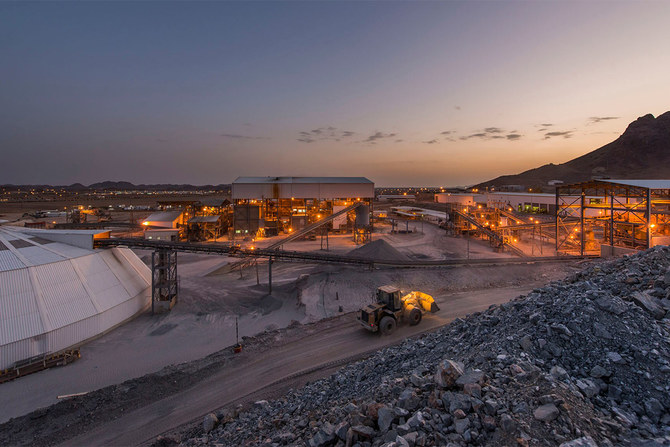RIYADH: Saudi Arabia has launched a competitive bid for seven new mining exploration licenses, covering an area of approximately 1,000 sq. km.
Announced on Aug. 7 by the Ministry of Industry and Mineral Resources, this initiative seeks to attract both local and international investors to explore these promising sites.
The exploration sites span various regions and are rich in valuable minerals. The Umm Qasr site in Riyadh, covering over 20 sq. km., is known for its deposits of gold, silver, lead, and zinc.
Another site, Jebel Sabha in Riyadh, extends over 171 sq. km. and contains silver, lead, zinc, and cobalt. Wadi Doush in Asir, which spans more than 157 sq. km., holds deposits of gold, silver, and copper.
The Shuaib Marqan site in Riyadh covers over 92 sq. km and is rich in copper, silver, and gold. The Wadi Al-Jouna site in Asir, the largest of the sites, encompasses 425 sq. km. and contains copper, zinc, silver, and gold.
The Hazm Shubat site in Asir, covering over 93 sq. km., is noted for its gold deposits. Lastly, the Huwaimdhan exploration site in Makkah covers an area of more than 34 sq. km. and also contains gold.
This competition is part of the broader Exploration Enablement Program, designed to accelerate the exploration and development of Saudi Arabia's estimated mineral wealth, valued at SR9.3 trillion ($2.48 trillion). The initiative supports Vision 2030’s goal of establishing mining as a crucial pillar of the national industry.
Interested parties must submit their technical bids by early September 2024, with the winners expected to be announced by the end of the month. The ministry has made geological and technical data available through a dedicated platform to assist bidders.
The evaluation process for the bids will be both transparent and fair, with 70 percent of the evaluation based on the technical work program and expertise, and the remaining 30 percent based on community contributions and innovation.
To further encourage investment, new incentives include support of up to SR7.5 million for companies holding exploration licenses for less than five years, allowing 100 percent foreign ownership, and financing up to 75 percent of capital costs through the Saudi Industrial Development Fund.
Investors interested in participating can visit the ministry’s mining platform to review detailed information and download relevant technical and geological reports.














